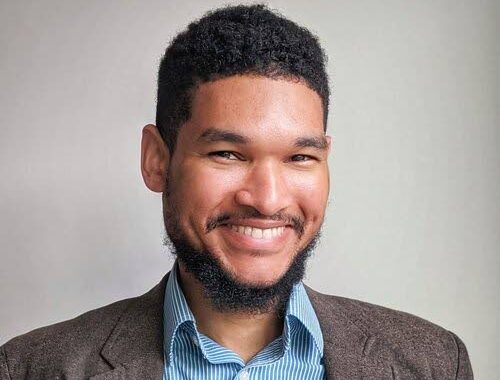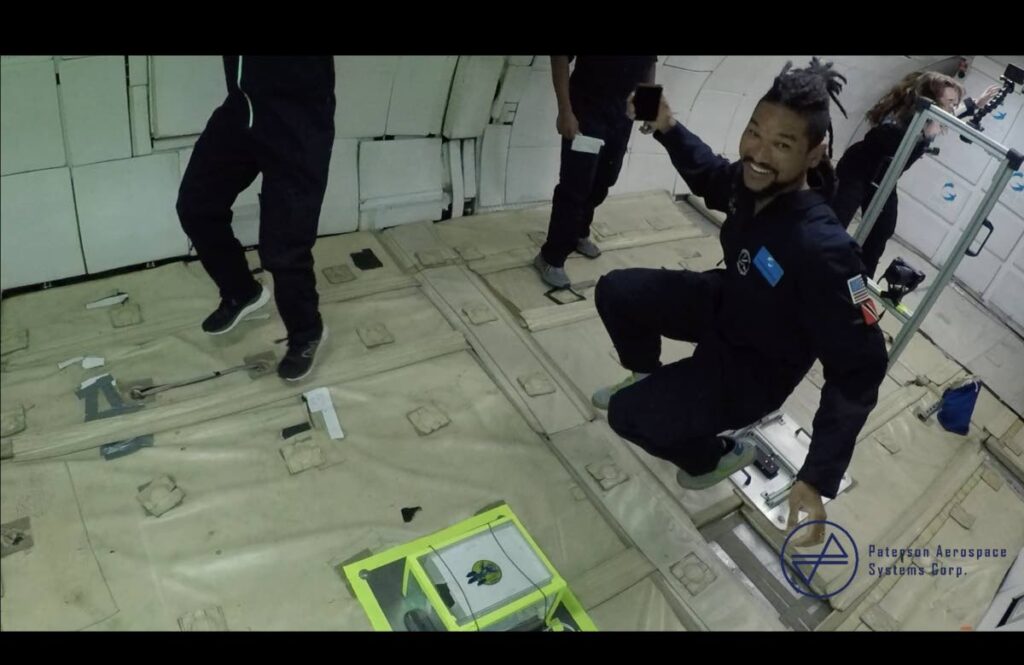Paterson is 4th Trini to make zero-gravity flight

Kaylon Paterson, 30, a space engineer and CEO of Paterson Aerospace Systems, became only the fourth Trinidadian to fly in zero gravity when he completed his mission on May 17.
Paterson has now followed in the footsteps of Karen Braun, who became the first Trinidadian to fly in zero gravity in the 1990s, Dr Camille Wardrope Alleyne in 2004, and Dr Aaron Persaud.
Paterson was selected to fly a scientific payload on a microgravity flight, by the ZERO G Corporation and the National Society of Black Engineers (NSBE) Aerospace Special Interest Group (SIG). The flight was funded by the Aurelia Institute, a media release said.
He became one of the 15 fliers in the 2023/24 Horizon cohort to complete the mission, after several months' delay.
Commenting on the flight, which lasted approximately one-and-a-half hours, Paterson outlined the main objectives, which were achieved with the assistance of reduced gravitational pull.
“We were able to gather data on the operation of two of our AI (artificial intelligence) algorithms which we will later compare for accuracy and performance. This has allowed our team to take one step further toward building out our technological capabilities. This data will be used to evaluate the accuracy and effectiveness of both algorithms and identify points of improvement for future space application," Paterson said in the release.
The delay of last year's flight, he said, "gave my team time to develop a secondary AI capability which is a testament to their hard work. I couldn't do any of this without them.”
Noting that there are only three-six scientific flights in a year, with the opportunity being more readily available to those who can afford it, Paterson underscored the significance of his flight to him as a proud Trinidadian, and in an age when representation, inclusiveness and equity matters more than ever.
“It meant a lot to fly the Trini flag patch on my flight suit, as it reminded me how far I have come to pursue my dreams (since my days at Fatima College). I wanted to represent my homeland and show others how far their dreams can take them if they put in some effort and don't take no for an answer.
"Trinis have been working in the space industry for decades and it's about time we start talking about it,” he emphasised.
Looking forward, Paterson plans to propel Paterson Aerospace Systems forward, contributing meaningfully to the space industry.

“I hope to continue to push my company and our technology to new levels of development and continue to bring diversity and environmental stewardship to the space industry.
"Personally, I'm hoping to continue to stay grounded in this industry that often sweeps me off my feet.”
In addition to advocating for environmental sustainability through his company, Paterson has previously advocated for inclusion of Caribbean nations in the aerospace industry as national point of contact for TT with the Space Generation Advisory Council, and has begun working to develop educational outreach initiatives for Caribbean participation in space.
The programme
The Horizon programme enables fliers across diverse communities and organisations to do research on a zero-gravity parabolic flight.
Selected fliers experienced 20 parabolas of microgravity, lunar gravity, Mars gravity, and hypergravity. Each flier participates in an art, storytelling, or research project that is enhanced or uniquely enabled by the modified gravity environment.
After their zero-gravity flights, fliers share their projects with their communities through storytelling, academic publications, documentaries, and social media. For some projects, Horizon is only the start, and projects continue to evolve for technology pipelines in other programmes, including suborbital, orbital, and lunar deployments.
The Horizon programme also incorporates students who have taken Aurelia’s Microgravity Project Design course, building on Aurelia Academy’s mission of future workforce development.

Comments
"Paterson is 4th Trini to make zero-gravity flight"